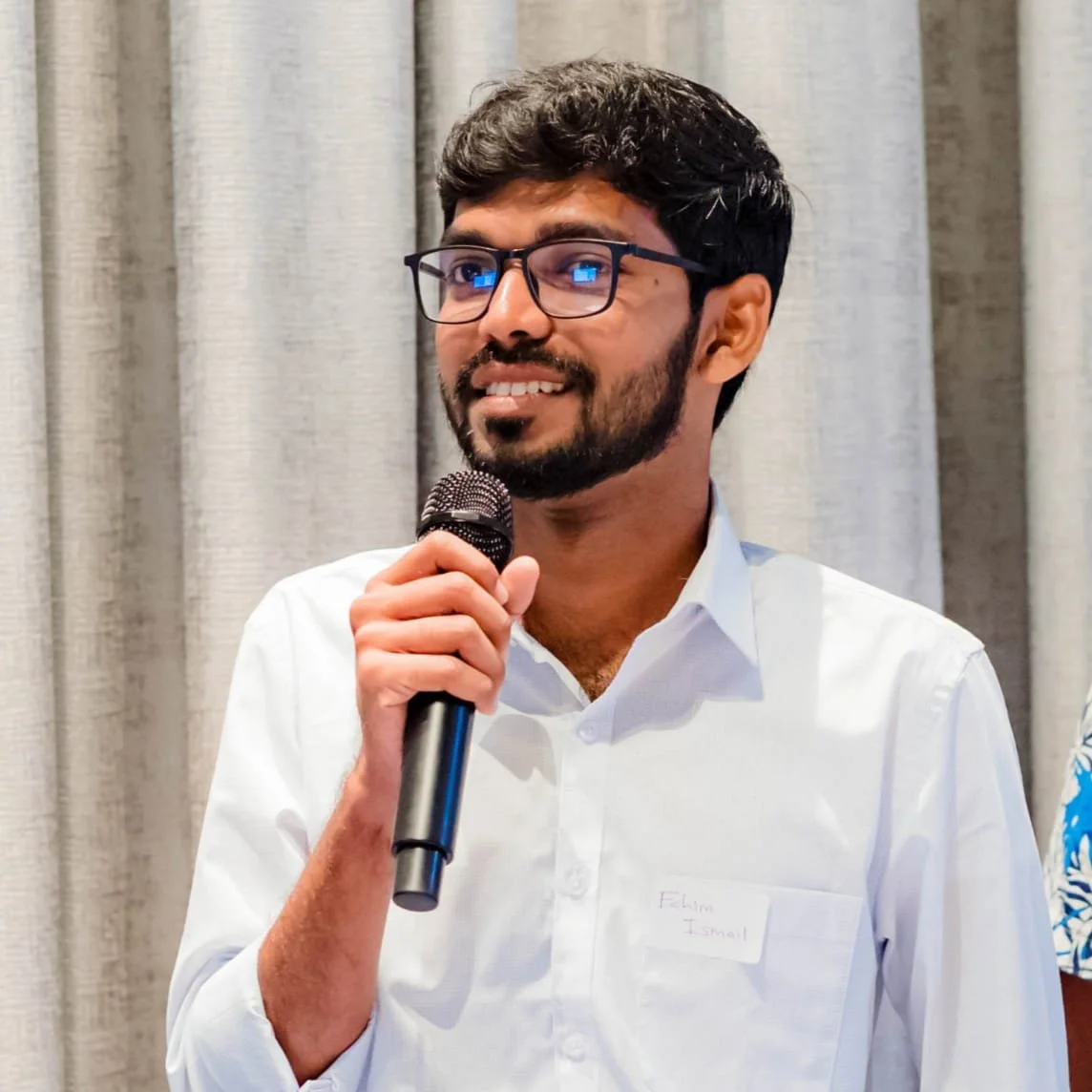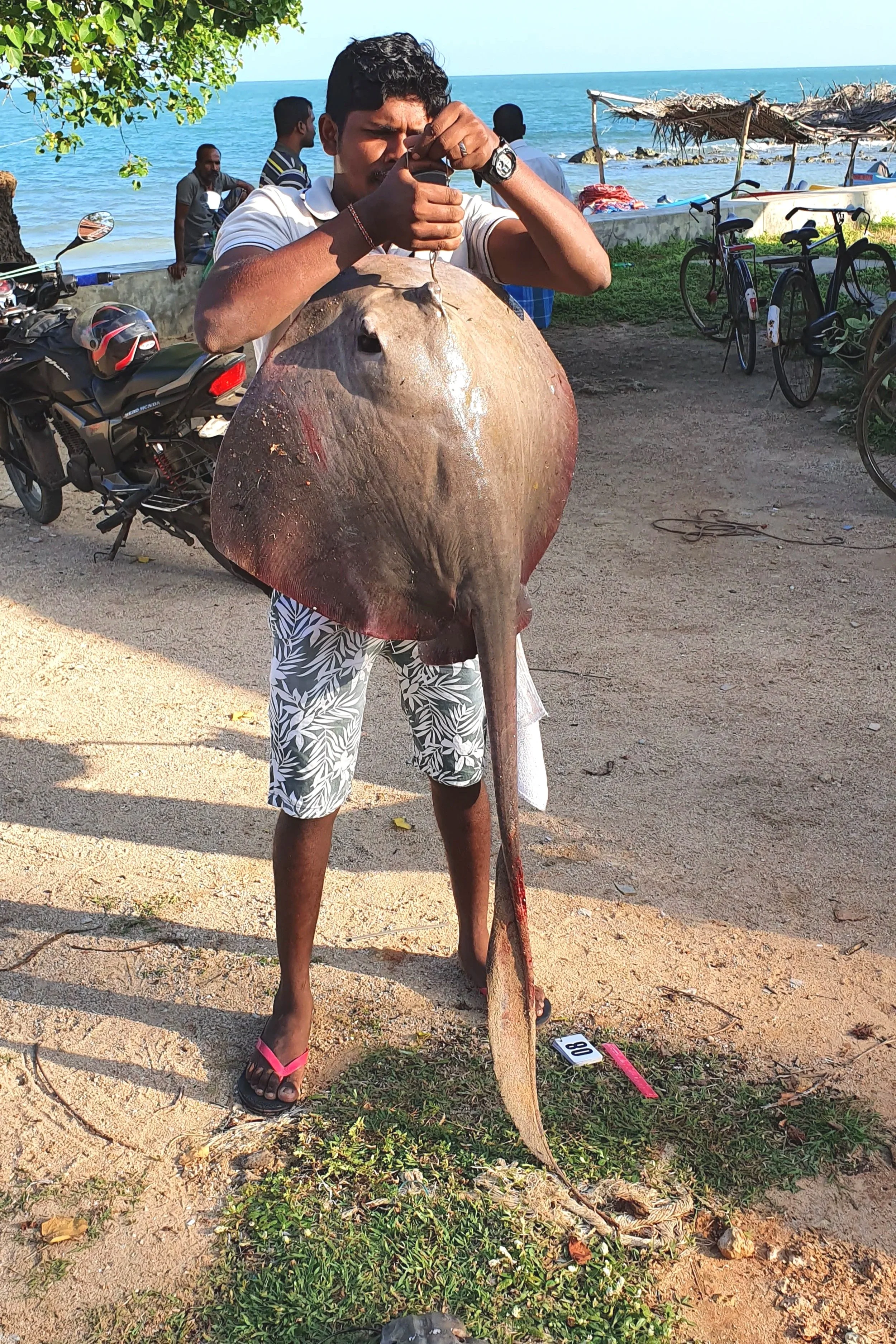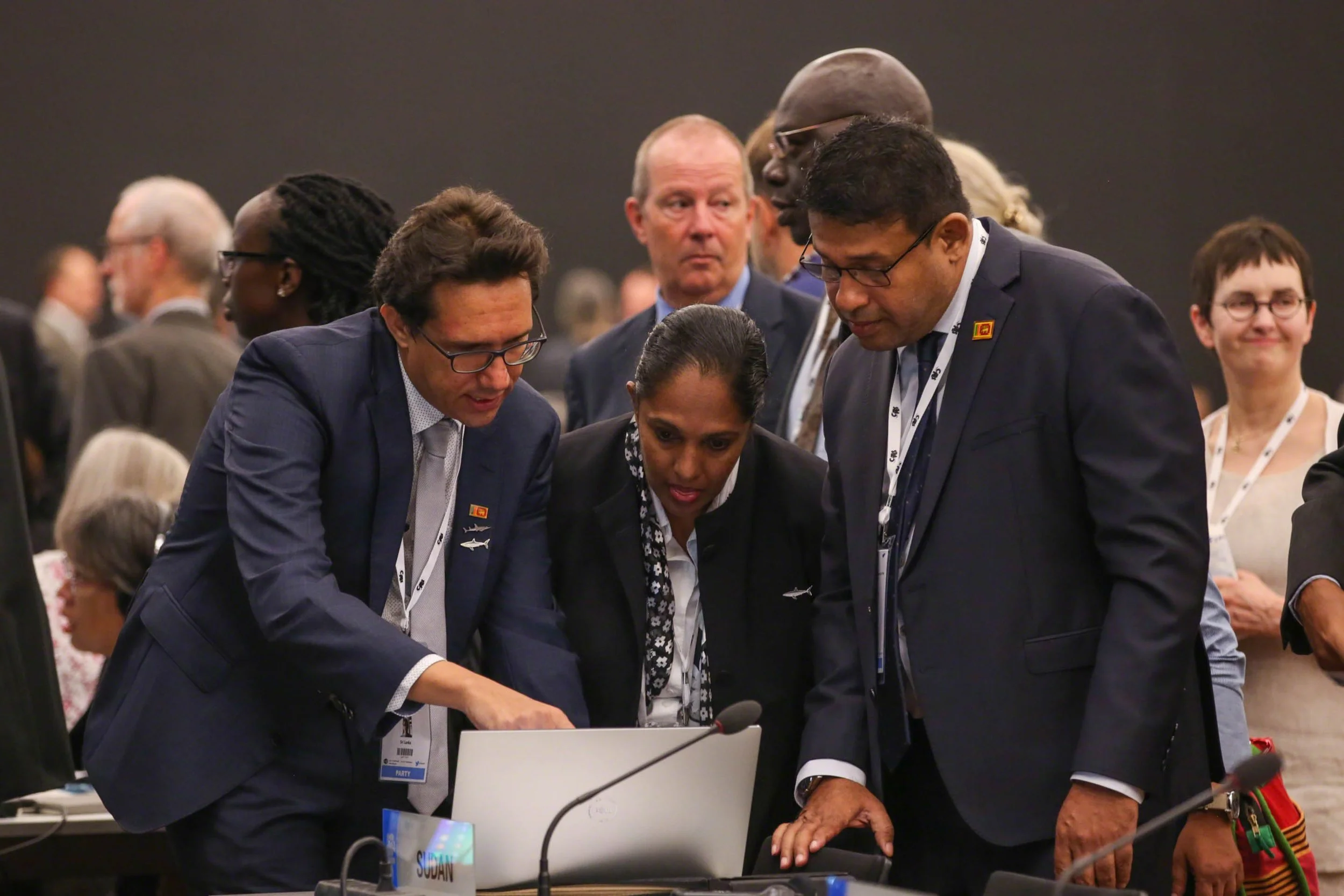Fisheries and Policy Programme (FiPo)
The Fisheries and Policy Programme at Blue Resources Trust studies Sri Lanka’s shark and ray fisheries to advance science-based conservation and management.
Through long-term monitoring, species identification, and data collection, the programme updates national species records, deepens understanding of threatened elasmobranchs, and informs sustainable policy under conventions such as CITES and CMS, as well as national regulations.
It also strengthens local research capacity and fosters awareness to protect marine biodiversity and the coastal livelihoods that depend on it.
Meet the Team
-
Akshay Tanna
Director, Operations
-

Anusha Neranjan
Senior Researcher
-

Apsara Rupasinghe
Genetics Researcher (BRT Scholarship)
-

Chethana Amadoru
Senior Researcher
-

Daniel Fernando
Director & Co-Founder of Blue Resources Trust
-

Fahim Ismail
Fisheries Outreach and Translation Consultant
-

Gobiraj Ramajeyam
Senior Researcher
-

Henry Mitchel
Joint Project Manager (Policy)
-

Malsha Gunasinghe
Joint Project Manager (Policy)
-

Maura Muraleetharan
Senior Researcher
-

Mikaela Stanborough
Design, Education and Outreach Associate
-

Pubudini Silva
Policy Programme Manager
-

Rahal Rambukpota
Fisheries Programme Manager
-

Shownath Sitsabeshan
Senior Researcher
-

Thilini Dilrukshi
Senior Researcher
Detailed Overview
Across Sri Lanka, growing demand for shark and ray products — including meat, fins, gill plates, oil, and skins — has led to increasing landings of these vulnerable species. Most are caught as non-discard bycatch in tuna and billfish fisheries, where gillnets and longlines are the primary fishing methods.
Of the roughly 105 species landed in Sri Lanka, over 70% are now threatened with extinction according to the IUCN Red List. Our research has also documented the local extinction of sawfishes, while their close relatives — wedgefish and guitarfish — appear to be following similar trends. Unlike bony fish, sharks and rays have slow life cycles more akin to whales or turtles, yet only five of Sri Lanka’s known species currently receive legal protection.
The decline of shark and ray populations — both locally and globally — threatens not only marine biodiversity but also the coastal communities that rely on these species for food security and income. Sharks and rays are vital to healthy ocean ecosystems, but they are also an important and affordable source of protein for many Sri Lankans.
To address these challenges, Blue Resources Trust established the Fisheries and Policy Programme — Sri Lanka’s first and only systematic, long-term study of shark and ray landings. The programme collects essential biological and fisheries data, including species identification, size, sex, maturity, fishing gear, and catch locations, and gathers tissue samples for genetic, stable isotope, and other analyses. The team also continually updates Sri Lanka’s elasmobranch species checklist and maintains the national identification guide developed by BRT. This long-term effort builds the evidence base needed for effective management and conservation, strengthened by BRT’s extensive collaborations with local partners and international experts.
Recognising that data collection alone is not enough, the programme actively works with national stakeholders to ensure research informs policy. BRT contributes data to IUCN Red List assessments, supports national reporting, and provides technical input to international conventions such as CITES and CMS — including the development of the e-NDF (electronic Non-Detriment Finding) tool for CITES species.
Beyond research and policy, the programme invests heavily in capacity-building and awareness-raising. It provides opportunities for young scientists and graduate students to gain field experience, and conducts training and outreach programmes for fisheries officers and government agencies to improve species identification and strengthen the enforcement of existing regulations.
Together, these efforts are helping to build a stronger scientific foundation for national policy — conserving Sri Lanka’s marine biodiversity and supporting the communities whose lives and livelihoods depend on it.
Key Projects
Sri Lanka Elasmobranch
Project (SLEP)
A long-term, island-wide monitoring programme documenting sharks, rays, and chimaeras landed in Sri Lankan fisheries to inform conservation and management.
Technical Support and
Research (Cefas)
Review and update Sri Lanka’s NPOA–Sharks, develop a national shark and ray ID guidebook, conduct deepwater BRUV surveys and genetic research on sharks and rays.
Technical Support for CITES
and CMS
Providing technical input to CITES and CMS processes, including species listings, and supporting the effective implementation of both conventions.
MPA’s, FMA’s, and Sustainable Financing (Oceans 5)
Strengthening and expanding MPAs and FMAs, fisheries and species management, and introducing sustainable financing for long-term implementation.
Electronic Non-Detriment Finding
(e-NDF) for CITES species
Developed custom software to support NDF development for sharks, rays, and seacucumbers. Encouraging wider adoption of and expanding it across other species groups.
Sharks International 2026 (International Conference)
Hosting Sharks International 2026 for the first time in Asia, with a strong emphasis on connecting science and policy and fostering an inclusive, diverse conference.
Countering Wildlife
Trafficking (INL)
Monitoring and documenting the trafficking of CITES-listed marine species in Sri Lanka, and supporting enhanced capacity for legal and enforcement authorities.
Bycatch Mitigation Project
(with Oregon State University)
Monitoring gillnet bycatch and trialling mitigation measures to reduce the incidental capture of small cetaceans, elasmobranchs, turtles, and seabirds.







